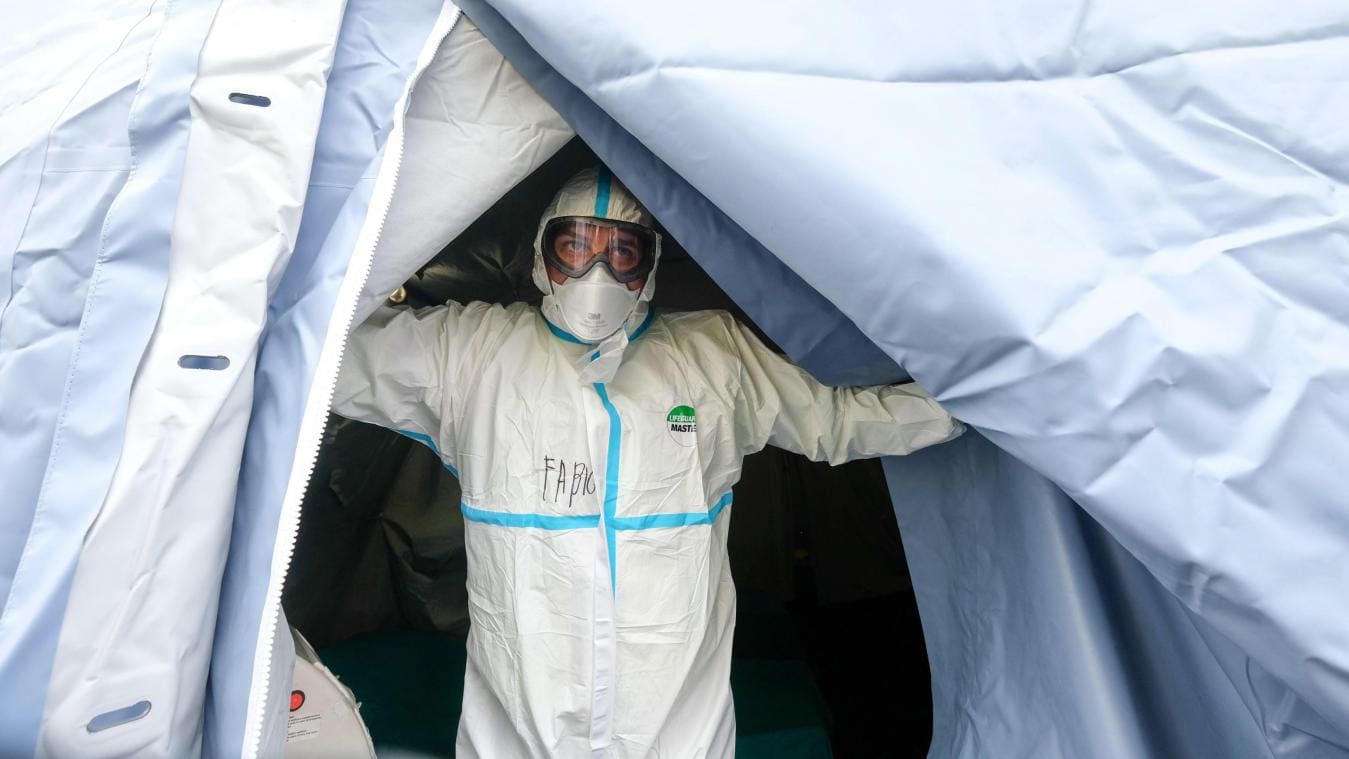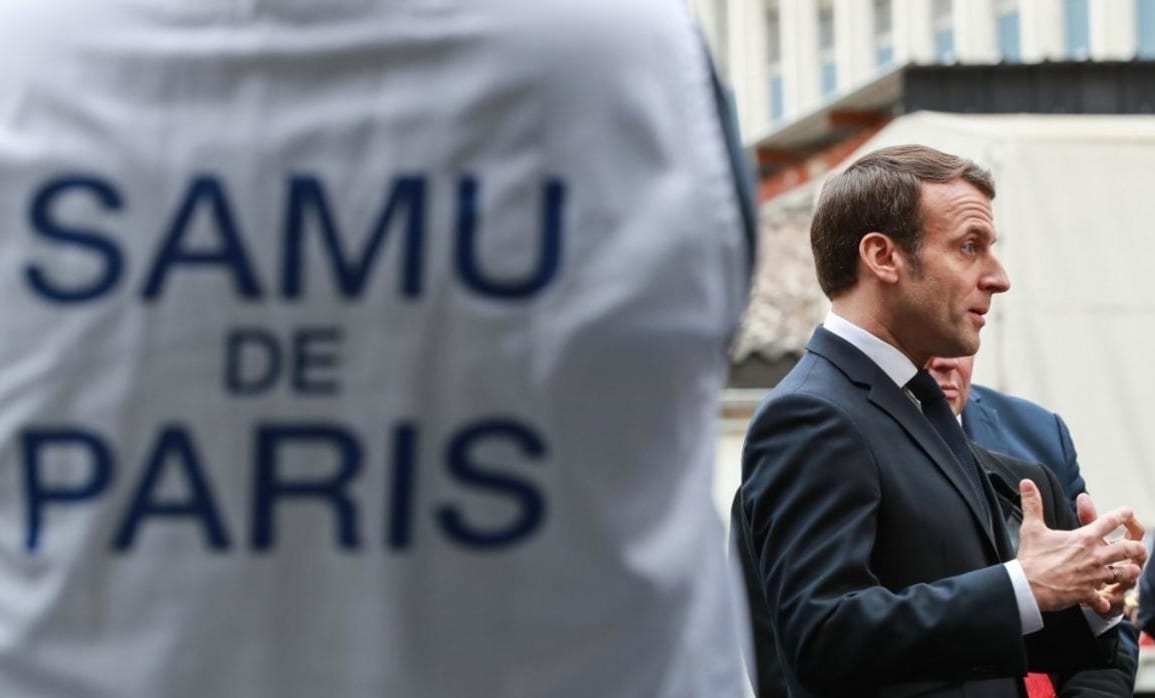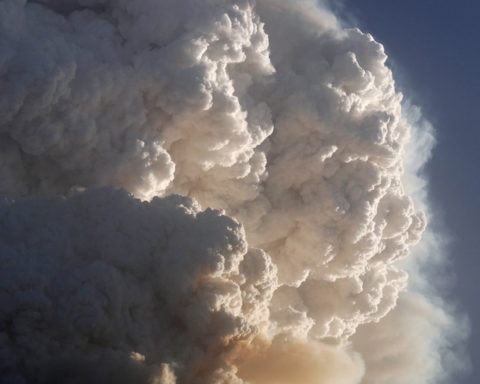For the majority of people, coronavirus infection will have no major consequences. But for a small fraction of those infected, it will be a matter of life and death. If the epidemic figures continue to rise, the small percentage of patients who will be in vital need of medical assistance could well saturate the intensive care units of French hospitals. What can be done then?
This question is already being asked in Lombardy, where the issue of disaster triage has become an important part of the Italian public debate with the dissemination by the Italian Society for Anaesthesia, Analgesia, Resuscitation and Intensive Care of a document containing "clinical ethical recommendations for admission or refusal of admission to intensive care in the exceptional conditions of an imbalance between needs and available resources"and the publication of testimonials from doctors sharing the dilemmas that plunge them, at the bedside, into the crisis situation.
On the other side of the Alps, what used to be a disaster-film scenario is now being discussed by the media as an ethical hypothesis that the public debate must responsibly grasp. But what are we talking about?
Refusing the temptation to make compassionate use of resources?
Triage", everyone knows the ordinary form of it, that of prioritizing the waiting list at the reception of hospital emergencies: under normal circumstances, the most serious cases have priority, the others can wait. What is rationed is time and speed of care, but each victim, whether young or in the prime of life, breadwinner or single, business owner or homeless person, receives the medical resources best suited to his or her needs, on an equal footing with the value of life.
But if services are overwhelmed, and there is a shortage of medical equipment or qualified personnel, then the temptation to make compassionate use of available resources must be rejected: when there is not enough for everyone, we must remember that we are serving the collective interest first, and seek to save as many lives as possible, rather than the most seriously affected victims.
The principle of "first come, first served" no longer applies: if there is only one artificial respirator left, attributing it to the first patient brought in in a state of respiratory distress, if his chances of benefiting from it are low, would mean an unfair condemnation for all those who could come behind with a less bad life expectancy. Not to mention, of course, all the other patients, who are not affected by the epidemic, but who would be even more at risk from hospital overcrowding.
The utilitarian imperative of maximizing the number of lives saved can then reverse the logic of prioritization, by shifting "too serious" cases, those with a low chance of survival, back into the category of "too serious". morituri - those who are going to die, and we give up trying to save them.
On what criteria should we base this?
In situations of shortage, the collective emergency triage therefore falls into a logic of disaster, where distributive justice issues take centre stage at the expense of medical criteria alone. The document of the Italian anaesthesia/resuscitation society thus insists, to grant or refuse access to resuscitation, on two criteria, the life expectancy and age of patients. If they are too old or too ill, on the other hand, they will refrain from putting them on respiratory assistance, in order to reserve medical resources for those who have a better chance of benefiting from them.
It is this lowering of the standard of care in crisis situations, for very frail or elderly people, that the Italian situation is making visible to the general public, whereas in normal times, the difficult trade-offs required by the evaluation of the therapeutic opportunity and the just-in-time operation of many services remain the responsibility of the doctors themselves, behind closed medical doors, without being the object of such public visibility.
The media dissemination of recommendations of the Italian Society of Anaesthesia and Resuscitation, thus leads to questioning the issue of distributive justice. It is always difficult to allocate scarce resources that are less than what is needed; but how to distribute chances of survival? What would be the relevant criteria, when the usual medical criteria are no longer sufficient?
Is there an age when it is "normal" to die?
Age may appear to be a reasonable and consensual criterion. But it is a culturally and socially marked criterion. And what justification do we want to give for it? That one does not have the same "need for" or the same "right to" a long life at 20 as at 80? In reality, we are unequal before age, we live it very differently from one another. Is it possible, is it desirable, to discuss collectively an age beyond which it would be, if not "normal" to die, at least not "scandalously abnormal" to be carried away?
If, on the scale of a public health policy, utilitarian logic is perfectly understandable, when it comes to the parents of this man or woman who could be you and begs you to try, it is obviously not an easy decision to make. As for the patients whose co-morbidity factors would make them ineligible for life-saving care, how can you ask them to resign themselves? Elsewhere, in another region, at another time, perhaps something could have been tried - how can you find it fair to see here, in this hospital, that doctors give up trying?
Moreover, even when calculated by algorithms built to take into account all relevant scores from the literature and existing databases, prognostic assessment is not an exact science and keeping exceptions open to try is a condition for the progress of medical science .
When is a change in sorting practices required?
The "worst-case scenarios" are familiar to practitioners, particularly emergency physicians, who are familiar with these anticipatory exercises by which the health system regularly prepares for disaster by drawing up ethical protocols for exceptional situations in advance of crises. And these protocols are essential to cover medical personnel on the front line, sparing them from having to take such dilemmas on their own shoulders in an emergency.
But the question of thresholds remains: what "disaster level" must be reached before new triage practices and standards of care are considered morally acceptable by the population? The provision of ethical protocols for disaster situations, however well thought-out they may be, always has the drawback of closing the window of miracles, of neutralizing the creative resources of the emergency, of accentuating the temptation, in the situation, to decree too quickly the ethical state of exception. They are, however, indispensable: their absence would run the risk, when the time comes, of an unjust improvised reaction, or that of a shared disaster.
Resurgent trauma complicates democratic debate
When you can't save everyone, deciding who to give a chance to and who to deny it to is a frightening, socially costly and risky trade-off. Its sudden visibility in the context of an epidemic crisis carries with it the weight of national traumas, of older resonances in the collective imagination.
Here and there, in the Italian articles surrounding the document distributed by the Italian Society for Anesthesia and Resuscitation, strange analogies and problematic metaphors emerge: one speaks of "Schindler's List." to designate clinical ethical guidelines, another of dividing the population into "castaways and survivors", " i sommersi e i salvati ", the title of a famous book by Primo Levi, which refers to the selection in the Nazi camps!
Of course, comparison is not reason, metaphor or allusion even less. But that the imaginary of selection in the camps or lists of exiles in genocide situations is proposed as a mental reflex to evoke the anxieties linked to the triage of disasters, when it comes out of the medical closed-door to impose itself in the public eye, must ask us about the prudence and difficulty of bringing these subjects into the democratic debate, before the crisis and after it.
The situation in northern Italy is not ours, and the challenge ahead of us will not necessarily be the same. However, the experience of our neighbours should make us reflect on the meaning and the democratic stakes of such a mise en abîme of the national community. What is the capacity of French society, in view of the serious tears accumulated in recent times, to accept the ethical rules of a degraded exercise? To find sufficient cohesion to assume a new sharing of risks and opportunities?
As frightening as it may seem to us, observed from the still relatively unspoiled shore where we stand, disaster triage remains a form of collectively negotiated distributive justice, preferable to the reign of arbitrariness or emotion. As long as it is perceived as such, and not as an abuse of power to be resisted.
To go further:
– "Who shall live who shall die. When you can't save everyone."F. Leichter-Flack, Albin Michel;
– "The medicine of sorting"Edited by Céline Lefève, Guillaume Lachenal and Vinh-Kim Nguyen, PUF ;
– "Pandemic flu: the order to mobilize"a collective work directed by Emmanuel HirschDeer ed.
Frédérique Leichter-FlackHDR Lecturer at the University of Paris Nanterre, specialist in ethics and literature / member of the Ethics Committee of the CNRS, University Paris Nanterre - University Paris Lumières
This article is republished from The Conversation editorial partner of UP' Magazine. Read theoriginal paper.
![]()









